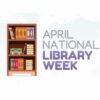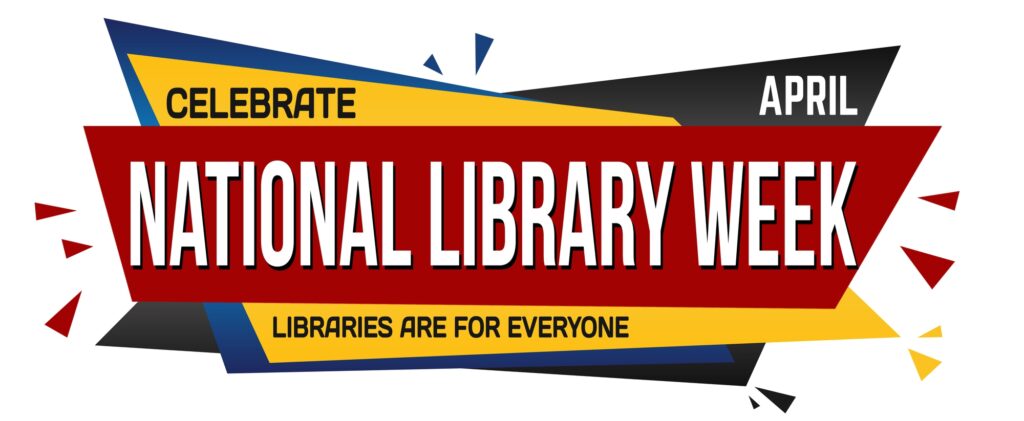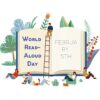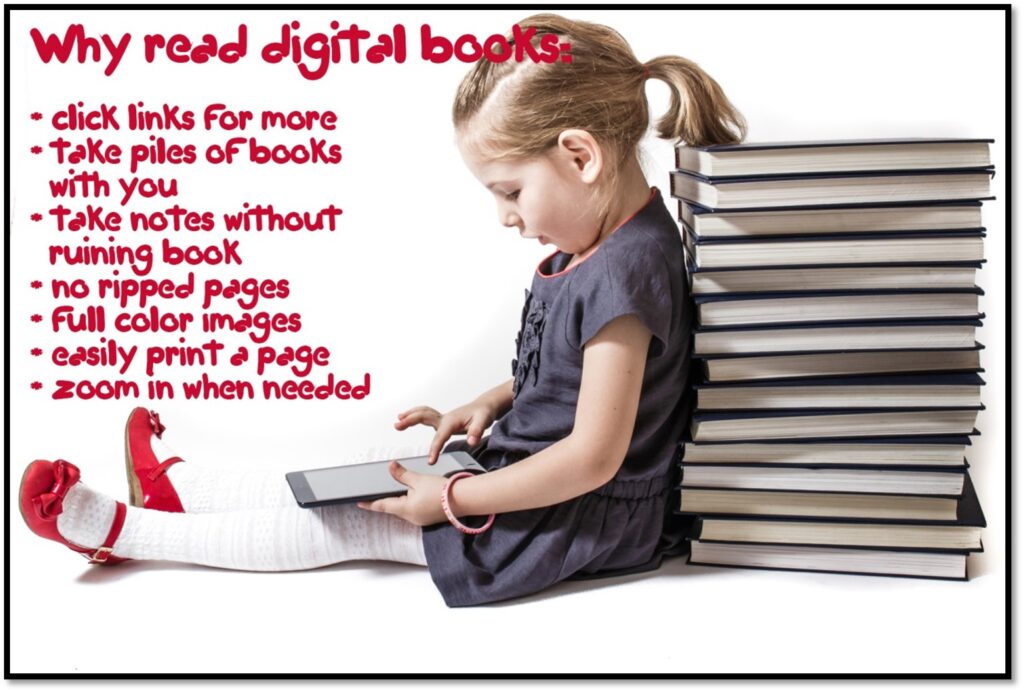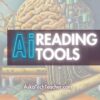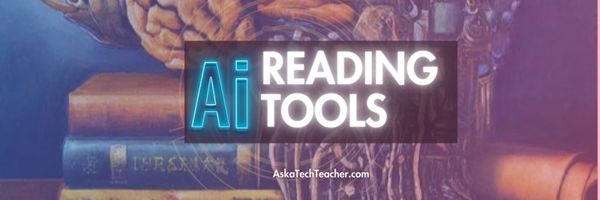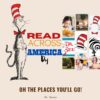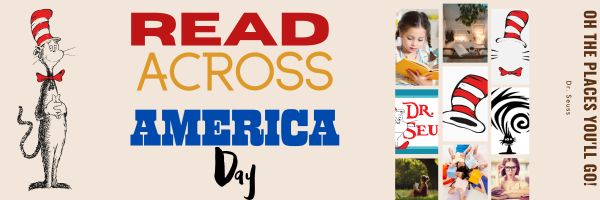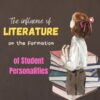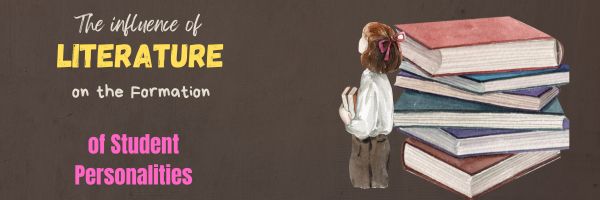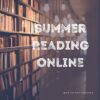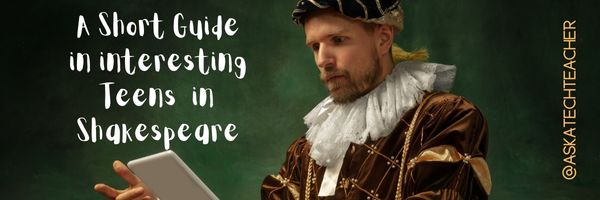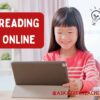Category: Reading
National Library Week–Resources, Links, Ideas
National Library Week is an annual celebration highlighting the valuable role libraries, librarians, and library workers play in transforming lives and strengthening our communities.
In the mid-1950s, research showed that Americans were spending less on books and more on radios, televisions and musical instruments. Concerned that Americans were reading less, the ALA and the American Book Publishers formed a nonprofit citizens organization called the National Book Committee in 1954. The committee’s goals were ambitious. They ranged from “encouraging people to read in their increasing leisure time” to “improving incomes and health” and “developing strong and happy family life.”
In 1957, the committee developed a plan for National Library Week based on the idea that once people were motivated to read, they would support and use libraries. With the cooperation of ALA and with help from the Advertising Council, the first National Library Week was observed in 1958 with the theme “Wake Up and Read!” The 2023 celebration marks the 65th anniversary of the first event.
Read more here:
Share this:
- Click to share on Facebook (Opens in new window) Facebook
- Click to share on X (Opens in new window) X
- Click to share on LinkedIn (Opens in new window) LinkedIn
- Click to share on Pinterest (Opens in new window) Pinterest
- Click to share on Telegram (Opens in new window) Telegram
- Click to email a link to a friend (Opens in new window) Email
- More
#WorldReadAloudDay February 5th
World Read Aloud Day celebrates the pure joy of oral reading with kids of all ages. Created by LitWorld, past years have found over 1 million people in 100 countries joining together to enjoy the power and wonder of reading aloud in groups or individually, at school or home, and discovering what it means to listen to a story told through the voice of another. For many, this is a rare opportunity to hear the passion of a well-told story and fall in love with tales where hearing them reaches listeners on a level nothing else can. Think back to your experiences. You probably sat with an adult, in their lap or curled up in bed. The way they mimicked the voices in the story, built drama, and enthused with you over the story and characters made you want to read more stories like that on your own. This is a favorite activity not just for pre-readers, but beginning and accomplished readers because it’s not about reading the book; it’s about experiencing it through the eyes of a storyteller.
Somehow, as lives for both the adults and children have gotten busier, as digital devices have taken over, as parents turned to TVs or iPads to babysit kids while they do something else, we’ve gotten away from this most companionable of activities. World Read Aloud Day is an opportunity to get back to it.
Importance of reading aloud
There is no more powerful way to develop a love of reading than being read to. Hearing pronunciations, decoding words in context, experiencing the development and completion of a well-plotted story as though you were there are reason enough to read aloud but there’s more. Reading in general and reading aloud specifically is positively correlated to literacy and success in school. It builds foundational learning skills, introduces and reinforces vocabulary, and provides a joyful activity that’s mostly free, cooperative, and often collaborative. Did you know reading aloud:
Share this:
- Click to share on Facebook (Opens in new window) Facebook
- Click to share on X (Opens in new window) X
- Click to share on LinkedIn (Opens in new window) LinkedIn
- Click to share on Pinterest (Opens in new window) Pinterest
- Click to share on Telegram (Opens in new window) Telegram
- Click to email a link to a friend (Opens in new window) Email
- More
Tech Tip #139: 9 Reasons to Use Digital Books
In these 169 tech-centric situations, you get an overview of pedagogy—the tech topics most important to your teaching—as well as practical strategies to address most classroom tech situations, how to scaffold these to learning, and where they provide the subtext to daily tech-infused education.
Today’s tip: Using digital books
Category: Problem-solving
As you discuss reading and the technology tools that inspire students in this activity, here’s a poster with nine reasons why students will love digital books:
They’re light-weight, easy to transport, provide links for deeper learning, differentiate for student needs (like zoom to see better or a change of font), allow for the addition of notes that can be erased, and pages never rip. What more could you ask?
Sign up for a new tip each week below or buy the entire 169 Real-world Ways to Put Tech into Your Classroom.
What’s your favorite tech tip in your classroom? Share it in the comments below.
Share this:
- Click to share on Facebook (Opens in new window) Facebook
- Click to share on X (Opens in new window) X
- Click to share on LinkedIn (Opens in new window) LinkedIn
- Click to share on Pinterest (Opens in new window) Pinterest
- Click to share on Telegram (Opens in new window) Telegram
- Click to email a link to a friend (Opens in new window) Email
- More
4 Innovative Ways to Enhance Reading Comprehension with AI Tools
I’m excited about this post from the Ask a Tech Teacher crew–AI Tools for reading comprehension. There are so many directions this could go!
4 Innovative Ways to Enhance Reading Comprehension with AI Tools
Struggling to grasp the essence of a dense PDF or wishing students could wrestle more effectively with complex texts? The key may reside in AI-powered reading assistants, a broad category encompassing everything from summarizers to intelligent note-taking platforms.
Let’s explore five innovative strategies that make the most of these AI capabilities, tailored not only to keep pace with rapid technological advancements, but also to foster enhanced educational experiences! (more…)
Share this:
- Click to share on Facebook (Opens in new window) Facebook
- Click to share on X (Opens in new window) X
- Click to share on LinkedIn (Opens in new window) LinkedIn
- Click to share on Pinterest (Opens in new window) Pinterest
- Click to share on Telegram (Opens in new window) Telegram
- Click to email a link to a friend (Opens in new window) Email
- More
35 Resources for Read Across America Day
Many people in the United States, particularly students, parents and teachers, join forces on Read Across America Day, annually held on March 2nd to coincide with the birthday of Dr. Seuss. Let’s celebrate with this take-off of his writing style, but about technology, reprinted with permission of Gene Zigler at Cornell University:
If a packet hits a pocket on a socket on a port, and the bus is interrupted as a very last resort, and the address of the memory makes your floppy disk abort, then the socket packet pocket has an error to report. If your cursor finds a menu item followed by a dash, and the double-clicking icon puts your window in the trash, and your data is corrupted 'cause the index doesn't hash, then your situation's hopeless and your system's gonna crash! If the label on the cable on the table at your house, says the network is connected to the button on your mouse, but your packets want to tunnel on another protocol, that's repeatedly rejected by the printer down the hall, and you screen is all distorted by the side effects of gauss, so your icons in the window are as wavy as a souse, then you may as well reboot and go out with a bang, 'cause as sure as I'm a poet, the sucker's gonna hang! When the copy of your floppy's getting sloppy on the disk, and the microcode instructions cause unnecessary risk, then you have to flash your memory, and you'll want to RAM your ROM. Quickly turn off the computer and be sure to tell your mom. Copyright © Gene Ziegler Email: Gene_Ziegler@Cornell.edu --reprinted with permission © 6-28-09
Here are thirteen great reading websites for students K-5: (more…)
Share this:
- Click to share on Facebook (Opens in new window) Facebook
- Click to share on X (Opens in new window) X
- Click to share on LinkedIn (Opens in new window) LinkedIn
- Click to share on Pinterest (Opens in new window) Pinterest
- Click to share on Telegram (Opens in new window) Telegram
- Click to email a link to a friend (Opens in new window) Email
- More
The Influence of Literature on the Formation of the Personalities of Students
No one questions whether literature influences the formation of student personalities. It enhances cognitive abilities, emotional intelligence, moral and ethical development, identity formation, communication skills, social awareness, and creativity. It helps students to grow into well-rounded individuals with a deeper understanding of themselves and the world around them.
One of our Ask a Tech Teacher contributors has a more in-depth analysis of this seemingly benign causative influence:
The Influence of Literature on the Formation of the Personalities of Students
The Influence of Books
Literature is a separate area that plays a significant role in the formation of a personality. It can be different. Fiction, essays, science. Children’s literature, memoir, poetry. Starting from early childhood, we have the opportunity to immerse ourselves in the fascinating adventure or scientific world of books. After all, fiction includes novels, short stories, and novellas. Essays convey the author’s thoughts and analysis of a particular topic. Scientific literature includes scientific articles and publications in academic journals. Poetry uses language and rhythm to express feelings and emotions. Memoirs tell about the life and experiences of the author. Children’s literature includes fairy tales, adventures, and educational literature. Religious literature explores religious issues, ethics, and morality.
All of the above is very relevant for students. For they are in a period of self-determination and search for their place in the world. Studying literature does not just broaden students’ horizons. It influences their intensive personal development, and thus their personal growth. Let’s take a closer look at the impact of literature on the formation of students’ personalities, in particular, on the example of The Distance Between Us.
Share this:
- Click to share on Facebook (Opens in new window) Facebook
- Click to share on X (Opens in new window) X
- Click to share on LinkedIn (Opens in new window) LinkedIn
- Click to share on Pinterest (Opens in new window) Pinterest
- Click to share on Telegram (Opens in new window) Telegram
- Click to email a link to a friend (Opens in new window) Email
- More
Summer Reading Online
Thanks to the efforts of many devoted professionals and the financial support of more, there are a wide variety of free/inexpensive sources for books that students can use for classroom activities as well as pleasure.
Here are a list of sites that offer digital books for kids to adults:
Share this:
- Click to share on Facebook (Opens in new window) Facebook
- Click to share on X (Opens in new window) X
- Click to share on LinkedIn (Opens in new window) LinkedIn
- Click to share on Pinterest (Opens in new window) Pinterest
- Click to share on Telegram (Opens in new window) Telegram
- Click to email a link to a friend (Opens in new window) Email
- More
A Short Guide to Interesting Teens in Shakespeare
William Shakespeare is internationally regarded as one of the greatest playwrights and poets in history, and his works have had a profound impact on our cultural heritage. Learning Shakespeare is a valuable and rewarding experience that can enrich our understanding of literature, language, and culture.
Here’s a quick overview of how to get teens interested in Shakespeare:
A Short Guide to Getting Teens Interested in Shakespeare
If you’re a high school teacher, you can probably hear the groans now as they wave through the classroom. You’ve reached the inevitable Shakespeare unit of an English course, and some students just are not clicking with it.
But they call him the “immortal bard” for a reason. The themes, character dynamics and conflicts in Shakespearean plays echo into the modern day. Some of his principal preoccupations – the enduring nature of love, the pitfalls of tyranny, etc. – are as relevant in 2023 as they were in 1600. And students have a lot to learn from keen insights, critical gaze and deep understanding of human nature present in Shakespearean literature.
Share this:
- Click to share on Facebook (Opens in new window) Facebook
- Click to share on X (Opens in new window) X
- Click to share on LinkedIn (Opens in new window) LinkedIn
- Click to share on Pinterest (Opens in new window) Pinterest
- Click to share on Telegram (Opens in new window) Telegram
- Click to email a link to a friend (Opens in new window) Email
- More
Online Reading for National Library Week
National Library Week is April 23-29, 2023. It allows us to promote our local libraries and their workers. Find more about here at the American Library Association.
Because I know most of you online only, I thought I’d share my favorite online libraries with you (click here for updates to the list):
For Children
- Aesop for Children–collection of fables
- Actively Learn–add PDFs of your choice to a library that can be annotated, read, and shared.
- Audio Books–apps for books purchased through Audio Books (and free ones)
- Bookopolis–focused on student reading
- Books that Grow–read a story at many different reading levels
- Class Literature
- Epic–a reading library for kids, 15,000 books; most digital devices
- RAZ Kids–wide variety of reading levels, age groups, with teacher dashboards
- Reading Rainbow–library of books; free to try
- Tumblebooks (fee)–focused on student reading
For All Ages
- Free Books–download any of our 23,469 classic books, and read
- Actively Learn–add PDFs of your choice to a library that can be annotated, read, and shared.
- Bookopolis–focused on student reading
- Books that Grow–read a story at many different reading levels
- Class Literature
- Epic–a reading library for kids, 15,000 books; most digital devices
- Free Books–download any of our 23,469 classic books, and read
- Great Books Online by Bartleby
- Gutenberg Project
- IBooks–amazing way to download and read books.
- International Library
- Internet Archive— Internet Archive offers over 12,000,000 freely downloadable books and texts. There is also a collection of 550,000 modern eBooks that may be borrowed by anyone with a free archive.org account.
- Kindle–read ebooks, newspapers, magazines, textbooks and PDFs on an easy-to-use interface.
- Librivox–free public domain audio books
- Loyal Books
- Many Books–Over 33,000 ebooks that can be browsed by language, author, title.
- Online Books Page
- Open Library
- OWL Eyes–for the classics
- RAZ Kids–wide variety of reading levels, age groups, with teacher dashboards
- Reading Rainbow–library of books; free to try
- Tumblebooks (fee)–focused on student reading
- Unite for books (free) — gorgeous, easy-to-navigate site.
Share this:
- Click to share on Facebook (Opens in new window) Facebook
- Click to share on X (Opens in new window) X
- Click to share on LinkedIn (Opens in new window) LinkedIn
- Click to share on Pinterest (Opens in new window) Pinterest
- Click to share on Telegram (Opens in new window) Telegram
- Click to email a link to a friend (Opens in new window) Email
- More
13 Websites with Online Stories
Here are popular resources teachers are using to share stories:
- Aesop Fables—no ads
- Aesop’s Fables
- Audio stories
- Childhood Stories
- Classic Fairy Tales
- Fairy Tales and Fables
- Listen/read–Free non-fic audio books
- Owl Eyes (classics)
- Starfall
- Stories read by actors
- Stories to read for youngsters
- Storyline
- Unite for Literacy
Click for more online story resources (or to update this list)
Share this:
- Click to share on Facebook (Opens in new window) Facebook
- Click to share on X (Opens in new window) X
- Click to share on LinkedIn (Opens in new window) LinkedIn
- Click to share on Pinterest (Opens in new window) Pinterest
- Click to share on Telegram (Opens in new window) Telegram
- Click to email a link to a friend (Opens in new window) Email
- More

